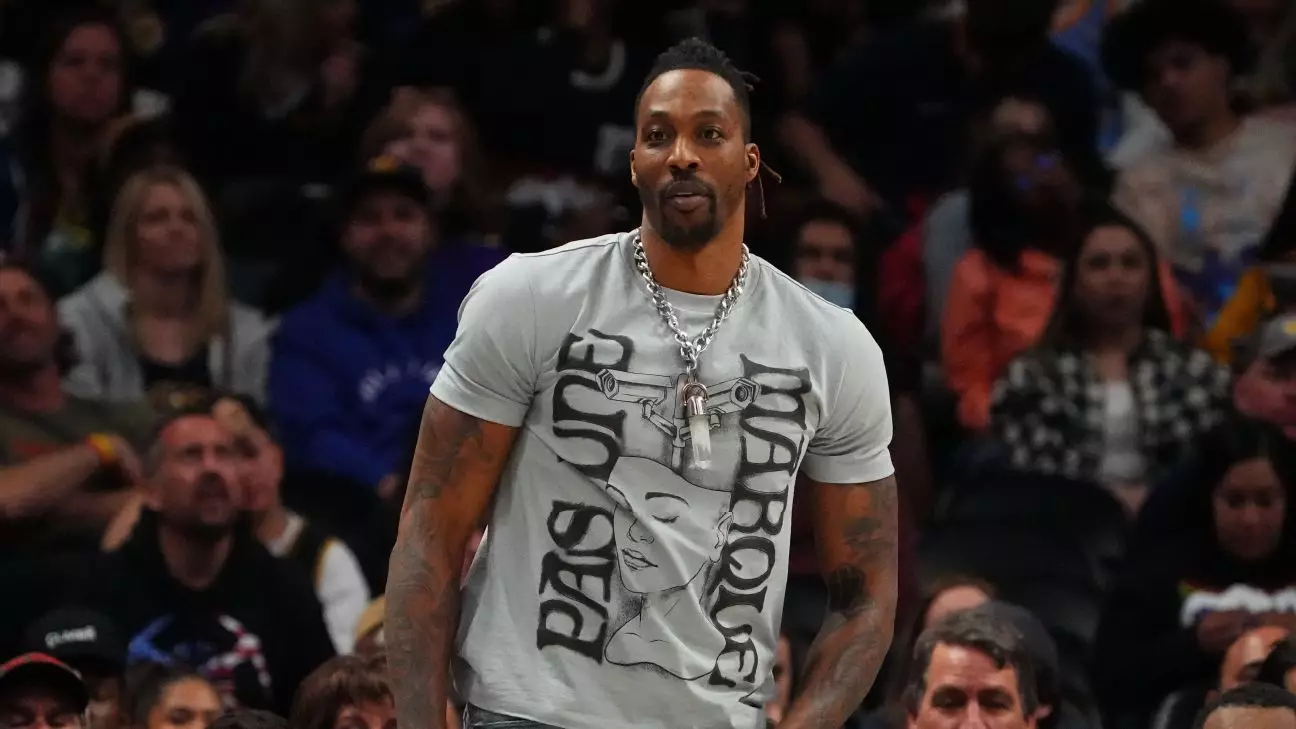In a significant ruling, a federal jury in Manhattan found Georgia businessman Calvin Darden Jr. guilty of five counts related to a deceitful scheme that defrauded former NBA athletes Dwight Howard and Chandler Parsons out of an astonishing $8 million. The verdict, delivered after a brief deliberation period of only five hours, exposes a deeper narrative of financial exploitation that is alarmingly prevalent within the realm of professional sports. Darden’s fraudulent activities, which included charges of fraud, bank fraud, money laundering, and conspiracy, reveal not just the personal ramifications for the victims, but also highlight the vulnerabilities elite athletes face when navigating complex financial landscapes.
Compounding the severity of the case is the involvement of Charles Briscoe, a former NBA agent who pleaded guilty to his role in the elaborate fraud last year. The partnership between Briscoe and Darden amplifies concerns regarding the ethical obligations of sports agents, particularly in safeguarding their clients from financial predation. The absence of rigorous oversight in this sector often leaves athletes, who typically prioritize their on-court performance, ill-equipped to handle intricate financial decisions. The case serves as a cautionary tale, illustrating how reliance on trusted figures can lead to catastrophic financial results when such trust is betrayed.
Darden’s manipulation came to light as prosecutors presented detailed evidence depicting how he diverted Howard’s substantial payment of $7 million, meant for an investment in the WNBA team, the Atlanta Dream. Instead of pursuing legitimate business opportunities, Darden squandered funds on extravagant purchases, including a $6.1 million luxury car collection, a lavish piano priced at $110,000, and a $90,000 collection of luxury watches. Additionally, a considerable portion was funneled into real estate, including a $3.7 million home in Atlanta, which raises questions about his financial management practices and ethical considerations surrounding wealth accumulation in professional sports.
Following the verdict, prosecutors signaled their intent to seek a lengthy prison sentence of 11 to 14 years for Darden, especially given his history of involvement in similar fraudulent schemes dating back to 2016. This persistent pattern of deception suggests a troubling trend within the financial landscape that professional athletes must navigate. As the Southern District of New York continues to pursue cases targeting financial crimes against vulnerable clients in the sports industry, it underscores the need for enhanced financial literacy among athletes.
The ramifications of Darden’s fraudulent activities extend beyond personal loss for Howard and Parsons; they bring to light systemic issues about financial responsibility and the potentially exploitative relationships between athletes and financial advisors or agents. Additionally, attention should be directed toward forthcoming trials, including that of former Morgan Stanley adviser Darryl Cohen, who is facing similar accusations regarding the fraudulent manipulation of players’ capital.
Ultimately, this case reflects the larger challenges faced by high-profile individuals who often find themselves the target of financial scams. It encapsulates the crucial need for vigilance, education, and a restructuring of how financial advisement is approached in professional sports to prevent such deceitful acts from recurring.


Leave a Reply